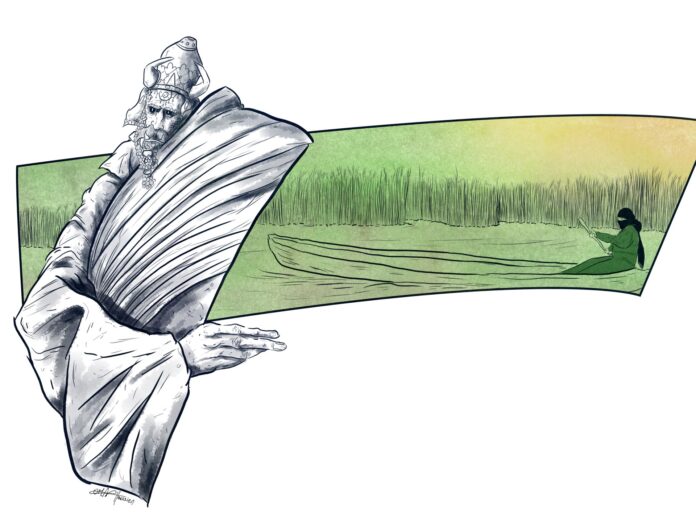The Middle East abounds in tales of spirits and their antics. Today, Al Jazeera brings some of these tales to life.
Myths and legends, whispered under the veil of night from elder to child, offer glimpses into a culture’s most profound fears, dreams, and values.
In Iraq, the enigmatic Marshes resonate with tales of the Tantal, an elusive creature that can shape-shift – from man to beast to inanimate object.
It is the essence of mischief, a trickster that delights in its trickery.
Imagine encountering a stranger in the Marshes, adorned in flashy, seemingly tasteless attire. This stranger, possibly a Tantal in disguise, might pose a peculiar question: “Do you think these clothes would suit you?”
Your answer holds weight. Admire his choice, and he may not only befriend you but also shower wealth upon you. Disapprove, and you risk the creature’s wrath, which could spiral you into madness.
Marsh dwellers will tell you the Tantal is a creature of the night, a guardian of hidden marshland treasures and a malevolent spirit quick to ensnare the unwary, especially children.
Visually, the unadorned Tantal is unsettling – with eyes oriented vertically like a cat’s and strikingly long, sharp canine teeth in an ambiguous “face” that hovers over a giant’s body that shuffles along, loose-limbed and terrifying.
Of course, it often appears disguised as another creature – a man, woman, child, cat, or dog – when it is out and about to ensnare the unwary.
Tales of the Tantal were also cautionary tales as grown-ups told children of the Tantal’s wrath, of how it could pull the defiant deep into watery graves.
Tantals take their names from the names of the Marshes – among the most famous names known in Iraqi folklore are Tantal Abu Ghraib, Tantal Umm al-Ubaid, Tantal Abu Asmej, Tantal Dawar, Tantal Salin, and Tantal Hafiz, who is considered the ruler of many Tantals in the Marshes.
The Tantal goes back to the legend of Hafiz himself, which was passed down from generation to generation among the clans of southern Iraq.
The legend says that in ancient times there were two great kingdoms in southern Mesopotamia, ruled over by two kings, Al-Akr and Abu Shadhar, who had a brother named Hafiz.
Life flourished in the two kingdoms, and the kings built ornate cities and temples with arched arcades and splendid balconies that looked over lush palm and fruit orchards the kings had ordered the planting of.
And they had huge fences built around their kingdoms to protect them from flooding from the Marshes. They felt they had done everything they needed to ensure a safe kingdom and a happy populace.
But the life of plenty and luxury meant they eventually strayed from the right path – they forgot God, forgot to dedicate their life to obeying the divine, and faltered in their worship.
God’s anger was swift, and he sent an earthquake that largely destroyed the kingdoms, including the fences, and a flood that drowned what was left, till all that remained was ruins.
Then God sent down Tantals and Jinn to guard the remains of these one-mighty kingdoms, which had been buried whole, with their treasures and delights.
And that is what the Tantals have done. Through the centuries, they have used fear and trickery to keep people away from whatever buried treasure the Marshes hold.
But if you were ever to get close to a Tantal, you would find that they have a gift: the power of foresight. Befriend it, and you may receive prophecies of the future.
Yassir Kareem, an Iraqi filmmaker, once interviewed an elderly man from the Marshes.
The man firmly believed the Tantal had visited him in a dream, predicting a future where the land would parch, and outsiders would claim it, forcing the native inhabitants away. This was a prophecy, he said, given the climate change that dried out the Marshes and the foreign oil companies that flooded into the oil-rich regions of Iraq.



